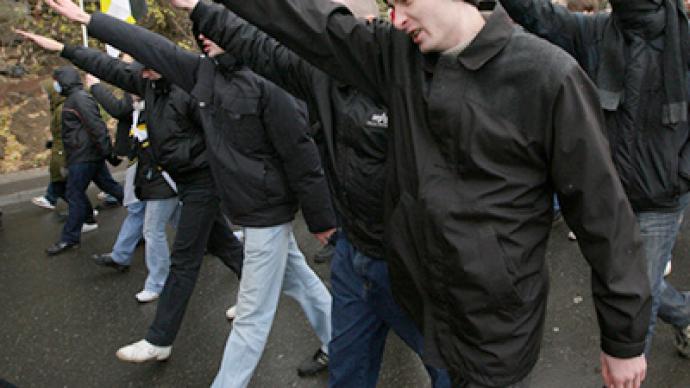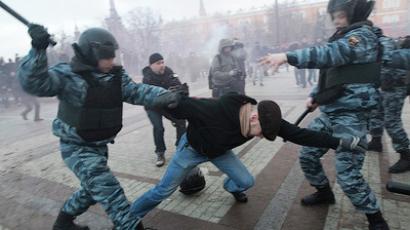Moscow launches campaign to promote tolerance

Moscow authorities have prepared a program to promote positive interethnic relations in the Russian capital. City Mayor Sergey Sobyanin has already approved the project.
In the second half of the year the authorities will release a series of social ads under the slogan “Don’t get contaminated with racism”. Those will include posters, billboards, as well as multimedia projects on the internet, Interfax reported. In addition, a website dedicated to interethnic relations will be launched and six documentaries about the conservation and development of national cultures will be shot and aired on TV. Moscow authorities also have plans to help religious organizations in organizing traditional festivities of various confessions. The program also includes numerous events for raising cultural awareness as a means to fight extremism and xenophobia.Earlier in June, Moscow authorities announced that they intend to work out a “code of a Muscovite” which it is thought would allow newcomers to get assimilated. The mayor suggested that these “rules of conduct” be drafted by “Moscow diasporas themselves”. “When we receive their proposals, we’ll invite academics and as a result we’ll come up with what we can call ‘a code of a Muscovite’,” Mikhail Solomentsev from Moscow’s Committee for Interregional Ties and National Policies explained. “Say, a person arrives in Moscow, and his fellow countrymen give them a brochure: ‘Have a look, read about what is accepted here and what is not.’” “For now, there are still tacit rules to which residents of our city should stick. For example, not to cut a sheep in the courtyard, not to grill barbeque on the balcony, not to wear national clothes in public places,” he added.The latest large-scale interethnic clashes occurred in Moscow on December 11 last year, shortly after mayor Sobyanin took office. Back then a rally in memory of a killed football fan turned violent, instigated by nationalist slogans. In general there is a high level of intolerance to migrants in Moscow. Most of them come from Central Asian republics and take non-qualified jobs. Many do not have any job contracts, are underpaid and live in poor conditions. Moscow and the federal authorities are now working on the improvement of migration legislation which would force employers to create decent working conditions for migrants and secure their rights.














